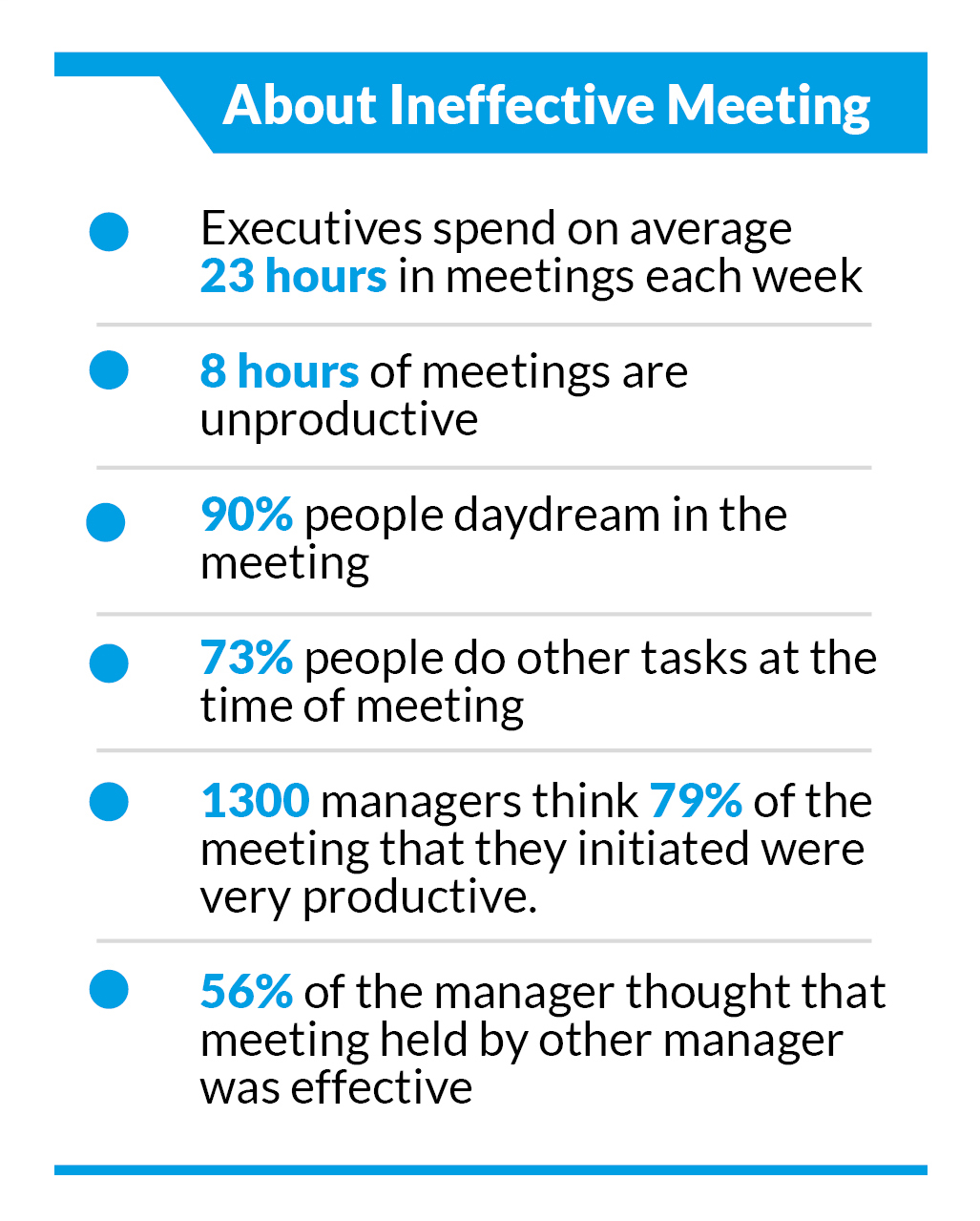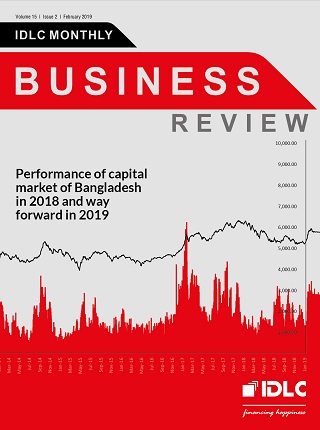Why your meetings do not work out and what can you do about it?
Outstanding leaders are often too positive on their capacity as they get consistent results from whatever they do. They lose track on the fact that they might not be good enough in the meeting as they think of themselves. This problem occurs when they become less bothered about feedback from the attendee of meetings and don’t look for any improvement in meeting contents. Major issues causing an ineffective meeting are irrelevant agenda items, overly long duration, and lack of focus, ascribing to which the most important meeting loses its importance.
Ineffective meetings made an impact in corporates and drew attention of the researchers. Many surveys were carried out to find out why meetings do not work out and the results were alarming. Survey indicates that ineffective meetings are evident in every organization and managers are not concerned about working on the improvements to get more interactive meeting sessions with the peers. Effect of a bad meeting does not just end there, it includes after effect behavior of the attendee through a new concept called ‘Meeting Recovery Syndrome’ .
Harvard Business Review summed up four preparatory measures that can reverse the current situation:
Assessment:
Before preparing a meeting, to establish better leadership, managers must observe themselves. They need to understand if people can follow the meeting or not and try to find out the positive and negative aspects of the meeting. And finally a leader who wants to top in every aspect work with both positive and negative to make it even better or to improve the condition.
Preparation:
Preparation before conducting a meeting with the contents and agenda can significantly improve the effectiveness of the meeting. Before holding a meeting, a good leader will make deliberate choices by knowing and defining the goals to set the stage for achieving them. Then one should decide the members who’ll help to achieve the goals. Too many people leads to more chaos. And finally, try to introduce a change in time and environment.

Facilitation:
As the conversation gets started in a meeting adopting a stewardship mindset, asking questions, engaging others, modeling active listening, drawing out concerns, and managing conflicts- these are the things that a leader must focus on to get the best outcome from a meeting.
Reassessment:
There will be room for improvement after every meeting so a good leader will reassess the whole meeting, find out the lacking from that meeting and work on those to make it better in the following meeting that is to be conducted.
ABOUT THE RESEARCH
“Why your meetings do not work out and what can you do about it?” is based on an article published on Harvard Business Review originally titled as “Why your meeting stink- and what to do about it?” which primarily focuses on the ineffectiveness of the meeting and improvement measures based on surveys conducted on this area.

Monthly Business Review- February 2019
Bright picture for Capital Market in 2019
The Market Capitalization (Mcap) /GDP ratio lowered to 17% in 2018 from 24% in 2014, whereas the peer countries mostly picked up for peer countries. One potential reason for this phenomenon is lack of listing of large corporates in the market. However, 2018 witnessed a number of developments in the form of partnerships and regulations. The strategic partnership between DSE and a Chinese consortium of Shanghai and Shenzhen Stock exchanges is expected to contribute in capital market improvement. BSEC approved the draft Qualified Investor Offer by Small Capital Companies Rules, 2018 that is expected to increase efficiency of the market by providing a separate market for small cap companies.
Future prospect of the capital market in 2019 looks bright as government expects GDP growth to be at 7.8% and inflation at 5.6%. Economic Intelligence Unit (EIU) and UN predicted Bangladesh to be one of the fastest growing economy. Provided that interest rates remain under control and liquidity conditions improve, the market is expected to perform better. Stable political environment will attract foreign investment and improvement of exports and remittance can help ease pressure on currency.
Download View